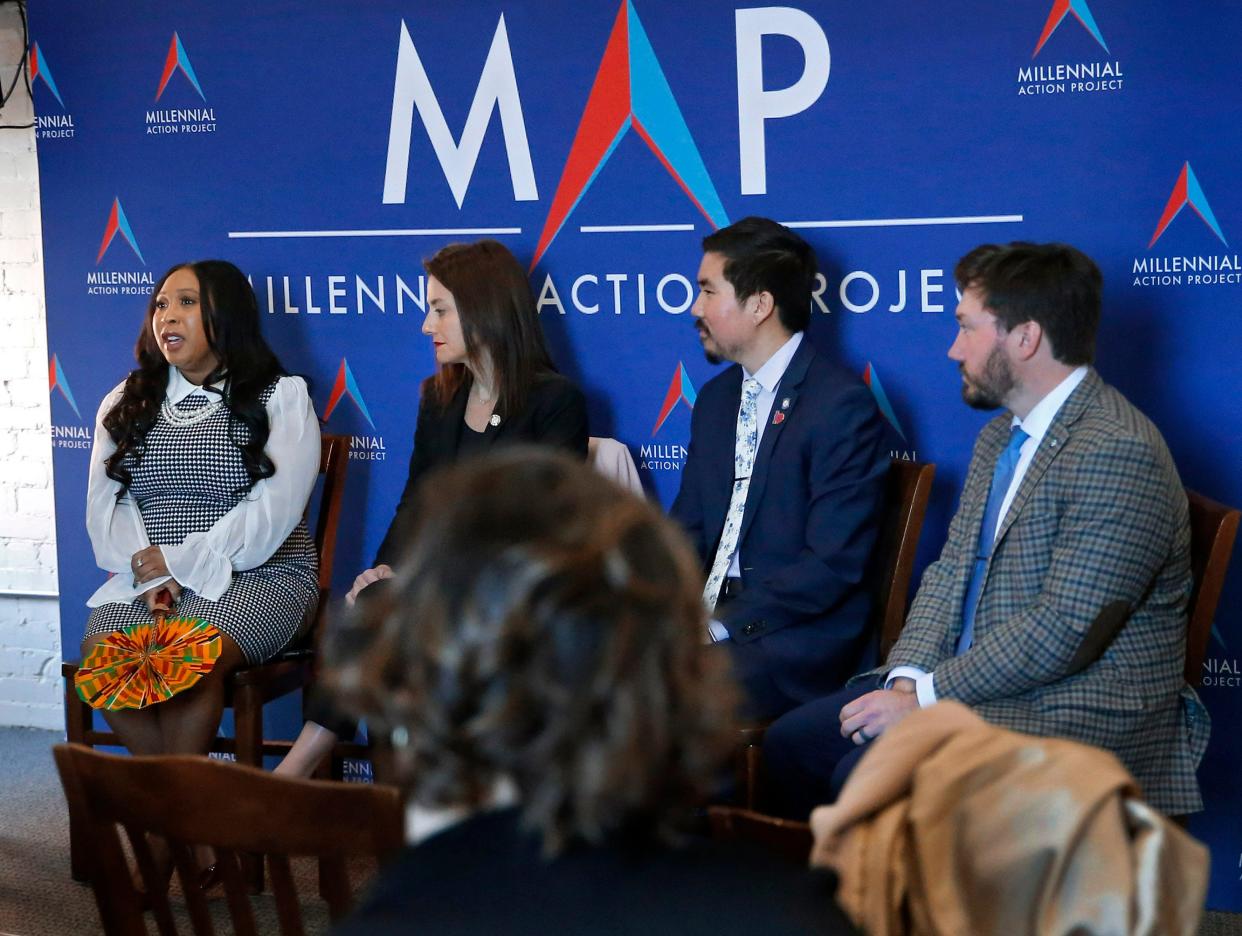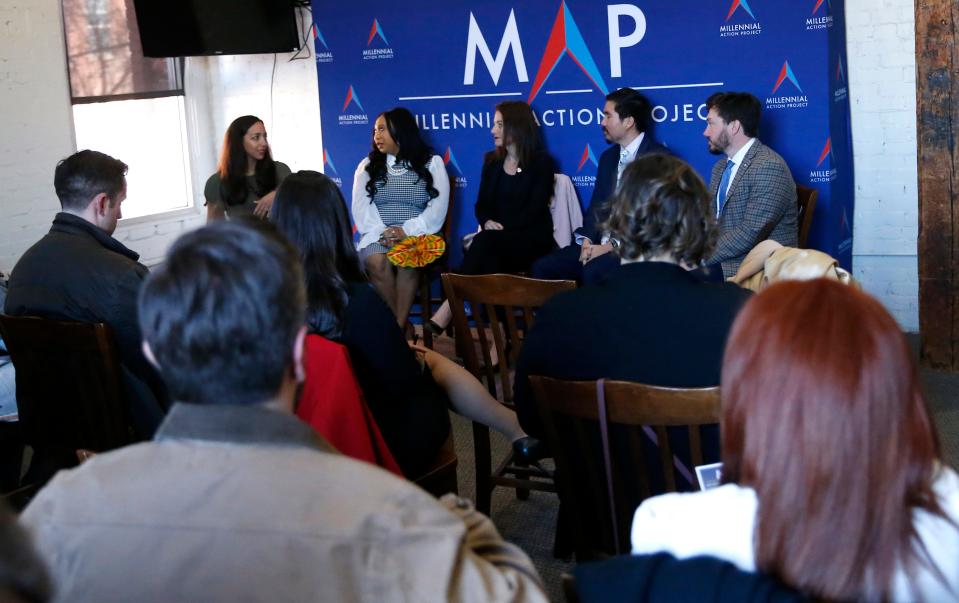Young Oklahoma lawmakers working to forge bipartisan connections

- Oops!Something went wrong.Please try again later.
- Oops!Something went wrong.Please try again later.
- Oops!Something went wrong.Please try again later.
A single party holds the vast majority of the Oklahoma Legislature's 149 seats, but a group of young lawmakers who want to see more bipartisanship are working hard to write good public policy with input from both sides.
Four leaders of the Oklahoma Future Caucus, a project aligned with the Millennial Action Project, spoke at a recent roundtable panel about how they work together and avoid the pitfalls of highly polarized rhetoric and behavior often seen at the state Capitol.
Despite his party's strong hold on the legislative majority, state Sen. John Michael Montgomery said he still wants and needs support from across the aisle. Mongtomery recalled that a few years ago when pushing legislation to create the Revenue Stabilization Fund, Scott Inman, then the firebrand Democratic leader of the House, stood up to support his bill.
"For me, it was actually a really cool moment of bipartisanship that I hadn't really seen up to that point," said Montgomery, R-Lawton. "It hits home, you know, that that's actually something that can happen, that you can get things done by working with the minority party in some cases."
The Millennial Action Project is a national nonpartisan organization that encourages young lawmakers to bridge the partisan divide. The organization first helped form a caucus, or group of lawmakers, in the U.S. Congress and has expanded its network to include members of 31 state legislatures. The Future Caucus Network is the largest nonpartisan organization of millennial and Gen Z elected officials in the United States.
Montgomery was joined on the panel by fellow state Sen. Jo Anna Dossett, a Democrat from Tulsa, and state Reps. Daniel Pae, R-Lawton, and Ajay Pittman, D-Oklahoma City.
Pittman described being an advocate for Black and Native American women while also having to navigate the sometimes treacherous halls of politics in Oklahoma. When your side of the aisle only has 20 of the 51 votes needed to pass legislation, she said, every successful bill is a bipartisan victory.

"Everything is a compromise," Pittman said. "And when you're accustomed to getting the least of it, a compromise is a win."
She looks forward to building a bipartisan coalition of support for her "Handle With Care" legislation, which directs the Oklahoma State Department of Education to create a program where law enforcement officers and state agencies must notify school representatives when a child has undergone a traumatic event that inhibits their performance in school.
House Bill 2513 advanced from committee and can now be heard on the House floor.
Pae, who has begun his fifth session as a state representative, represents thousands of current and former military members around the Fort Sill U.S. Army Base in Lawton. His constituents, he said, prefer straightforward solutions to real problems.
"I've always viewed governing as like riding a bike. When you ride a bike, you can't lean too far to the left or too far to the right," he said. "You have to be balanced in your approach and be mindful of your surroundings. That's what I've done since day one."
Pae, a Republican, said he makes it a point to talk with Democratic lawmakers about the bills he introduces, even if he technically doesn't need their votes for it to pass. He's also worked across the aisle on legislation that might seem unusual for a member of the GOP to champion.
One would let persons with an individual tax identification number sign up for state ID cards and driver's licenses, regardless of their immigration status. Another would make it legal in Oklahoma to do research on the therapeutic value of psilocybin, commonly referred to as "magic mushrooms."
Members of the Oklahoma Future Caucus also are working together on legislation. Pae and Dossett, a Tulsa Democrat, have drafted legislation together that would require the state to dole out at least 5% of its contracts to young companies that have been created within the past five years.
"We found out that was too much, too fast," Dossett said.
Instead, the pair coauthored a bill that would generate an annual report on the amount of state contracts that already go to young companies. Senate Bill 812 was heard in committee, and approved, just hours before the panel discussion. Dossett said Republican members of the committee debated in favor of her bill.
"That felt really, really good," she said. "But I will say that it goes back to two years and sessions worth of hard work, making sure that your majority members can trust you and that you're not a lightning rod all the time for issues that they find offensive in their districts."
This article originally appeared on Oklahoman: Young legislators work toward more bipartisanship in Oklahoma

